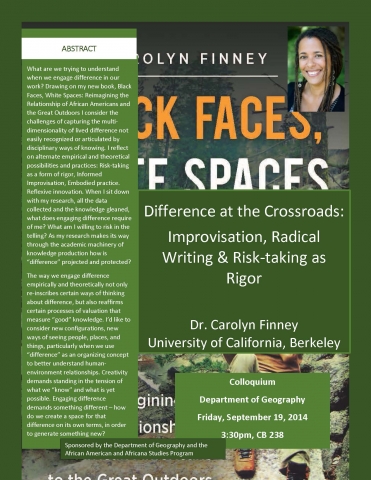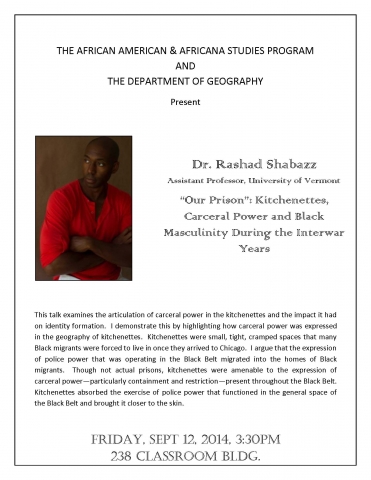"Confronting The Right to Food Through Abolition Ecology"
"Confronting The Right to Food Through Abolition Ecology"
"Confronting The Right to Food Through Abolition Ecology"
"Landscape Memory in a Time of Amnesia -- Recovering the Clark Fork River at Milltown, Montana"
"Drought busting tropical cyclones: Spatiotemporal patterns of drought amelioration in the Gulf and Southeastern Coastal United States"
"China Research: Social Media, Social Distance, and Memoryscapes"
GeoJeopardy is an annual Geography department event (held each fall).
It is very similar to the popular television show “Jeopardy” in which contestants answer trivia type questions except that the questions have a distinct geographic flavor and the contestants are all geographers (undergraduate and graduate students primarily).
Three teams of three each compete for prizes that typically come from the National Geographic store (e.g. Concise Atlas of the World, NGS Road Atlas, The Answer Book, etc.).
Door prizes are raffled off after the competition!
Can you name the city that is at the intersection of Interstate 75 and Interstate 40?
"Difference at the Crossroads: Impovisation, Radical Writing & Risk-taking as Rigor"
Carolyn Finney, Ph.D. is a writer, performer and cultural geographer. As a professor in Environmental Science, Policy and Management at the College of Natural Resources at the University of California, Berkeley, she explores how issues of difference impact participation in decision-making processes designed to address environmental issues. Although Carolyn pursed an acting career for eleven years, a backpacking trip around the world and living in Nepal changed the course of her life. Motivated by these experiences,
she returned to school after a 15-year absence to complete a B.A., M.A. and Ph.D. Informed by her early life experiences, the aim of her work is to develop greater cultural competency within environmental organizations and institutions, challenge media outlets on their representation of difference, and increase awareness of how privilege shapes who gets to speak to environmental issues and determine policy and action. Carolyn has appeared on Tavis Smiley, MSNBC, NPR and has been interviewed for numerous
newspapers and magazines. Along with public speaking, writing and consulting, she serves on the U.S. National Parks Advisory Board that is working to assist the National Park Service in engaging in relations of reciprocity with diverse communities. Her first book, Black Faces, White Spaces: Reimagining the Relationship of African Americans to the Great Outdoors explores the relationship of African Americans to the environment and the environmental movement (UNC Press).

This talk examines the articulation of carceral power in the kitchenettes and the impact it had on identity formation. I demonstrate this by highlighting how carceral power was expressed in the geography of kitchenettes. Kitchenettes were small, tight, cramped spaces that many Black migrants were forced to live in once they arrived to Chicago. I argue that the expression of police power that was operating in the Black Belt migrated into the homes of Black migrants. Though not actual prisons, kitchenettes were amenable to the expression of carceral power—particularly containment and restriction—present throughout the Black Belt. Kitchenettes absorbed the exercise of police power that functioned in the general space of the Black Belt and brought it closer to the skin.
